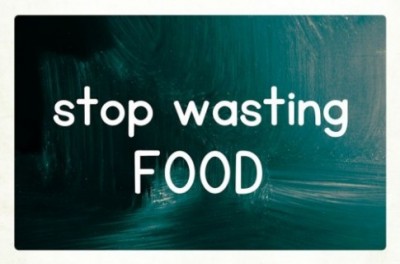In last week’s article, “What Would Jesus Do about Food Waste?” we saw Jesus instructing His disciples to pick up the leftover fish and bread so nothing gets wasted (John 6:12). When it came to securing and using every drop of food in Bible days, everyone was on board. There was only one exception. “When you are harvesting your crops and forget to bring in a bundle of grain from your field, don’t go back to get it. Leave it for the foreigners, orphans, and widows. Then the Lord your God will bless you in all you do” (Deuteronomy 24:19).
The only time it should be okay to leave good food hanging around, is if it’s left intentionally for others. If not, store and consume it. Consider the faces of the hungry when you’re tempted to toss food. Then consider these 6 sure ways to reduce food wastage:
Shop for fruits and veggies more frequently. These are the first to go bad. Bulk-buying can save money, but if half the purchase goes into the trash, you’re actually losing money. Buying fruits and veggies in short cycles will keep produce from getting withered or rotten.
Store food properly. Use the correct freezer bags and date the bag before freezing. Use green bags for fruits and veggies to preserve freshness. And whether in the fridge or pantry, use foods that have been in storage the longest.
Monitor kids when they’re self-serving. You don’t want to steal their autonomy by doing everything for them, but oversea them to maintain portion control. They’ll share three times the amount they’re going to eat, and then toss the rest. Teach them to conserve food and they’ll practice it even when you’re not looking.
Recreate leftovers. Eating the same meal two or three times in one week can be a turn-off. So, be creative. With simple tweaks leftovers can become a great lunch meal. They can also be used in soups and stews, or frozen for future recipes. One of my favorite leftover meals, is stir-fried rice. If your family isn’t a fan of leftovers, try cooking just enough for one meal.
Try the FoodKeeper App. This app helps reduce food wastage by offering valuable storage advice as well as reminders to use food items before their possible expiration dates, among other features. It’s available for Android and Apple devices.
Turn waste into compost. When all else fail, and you’re left with spoil food, make compost. Learn to make your own compost and use it in your garden. That way landfills don’t get over-crowded with foods that can be repurposed.
How will you start conserving food today?
References:
• Vance, R. (2015). Food Waste Can Have a Large Impact on Your Nitrogen Footprint. http//:www.usda.gov
• Bernstein, C. (2015). New USDA ‘FoodKeeper’ App: Your New Tool for Smart Food Storage. Retrieved from: http//:www.usda.gov
• (2014). Creation Stewardship. Creation Illustrated, 21, No.3.
 The Bottom Line, Ministries Christian News, Articles, & Poetry
The Bottom Line, Ministries Christian News, Articles, & Poetry 




